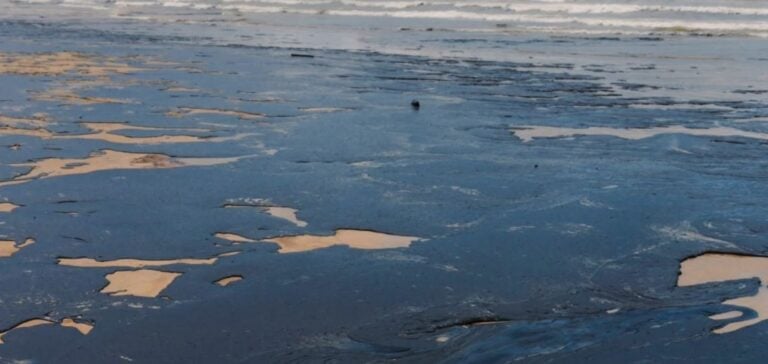Since mid-December 2024, Russia has been facing a significant environmental crisis in the Kerch Strait. Two Russian tankers, the Volgoneft-212 and the Volgoneft-239, sank during a storm, releasing part of their cargo of 9,200 tons of fuel oil. Initial estimates suggest that about 40% of this cargo leaked into the sea, causing massive pollution.
Impact on Soil and Coastal Areas
Russian authorities reported that 73,000 tons of contaminated sand have been removed from affected shores, although the total area of polluted soil could reach 200,000 tons. Cleanup efforts are concentrated on Russian beaches and certain areas of Crimea, including near the city of Kerch and Lake Tobetchiskoe.
The Russian Ministry of Emergency Situations confirmed the presence of petroleum products in these areas, heightening environmental and political concerns. This situation also underscores the economic burden of decontamination efforts, a major challenge for local authorities and the companies involved.
Criticism of Cleanup Efforts
Images released by the regional cleanup organization show volunteers removing polluted sand with shovels. However, several environmental experts criticized the approach, arguing that the equipment provided is inadequate for a disaster of this scale. This criticism raises questions about the effectiveness of investments in emergency infrastructure, an area where Russia is often deemed underprepared.
Political and Strategic Issues
The incident also has significant political implications. By acknowledging the severity of the situation, Russian President Vladimir Putin described it as an “ecological disaster.” However, this statement highlights the challenges posed by the management of maritime infrastructure in Russia, especially in strategic areas like the Kerch Strait, located between the Sea of Azov and the Black Sea.
Economic and political actors worldwide are monitoring the situation, particularly due to its potential impact on maritime trade and bilateral relations in the region. This crisis highlights the underlying tensions between Russia and international players regarding environmental security and shared waterway management.
Perspective for Companies and Governments
For companies operating in the energy sector, this incident emphasizes the importance of increased investments in safety and maintenance of oil transportation infrastructure. Additionally, it could prompt governments and international organizations to strengthen environmental regulations, particularly concerning the maritime transport of hazardous materials.
Russia’s ability to manage this crisis effectively will be crucial for its international reputation and energy policy, a central pillar of its economy.





















